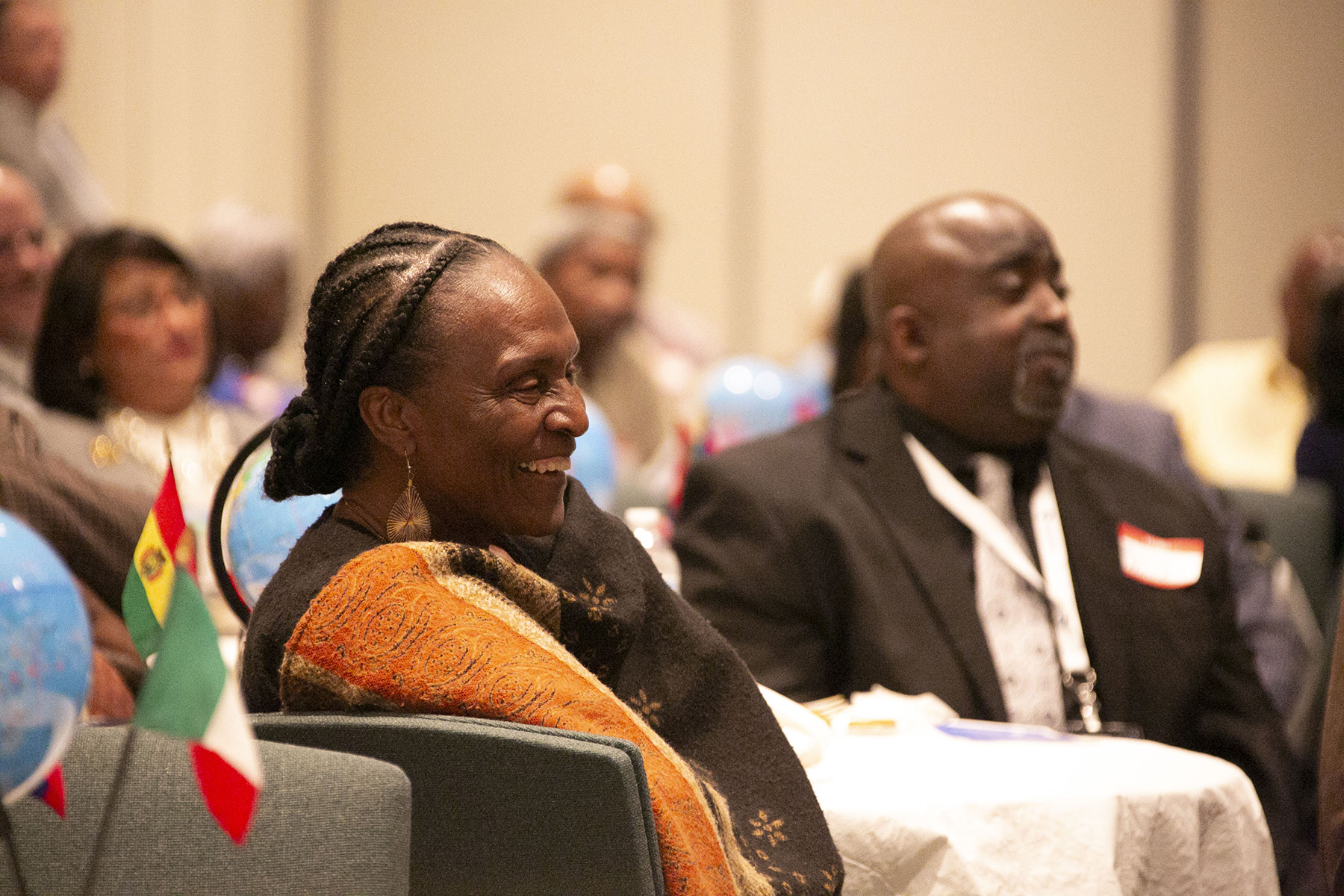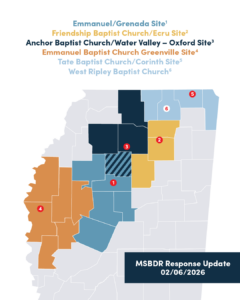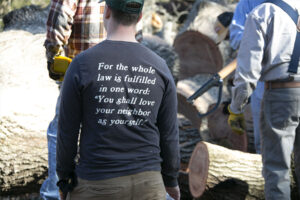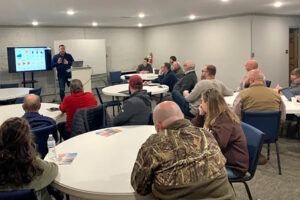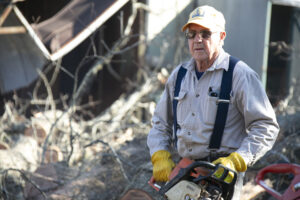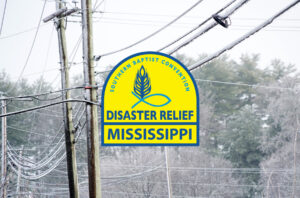By Lindsey Williams
Writing Specialist
MADISON, Mississippi — On the Monday night of the annual convention, a room at Broadmoor Church filled with quality cooking, connections and conversations among men and women whose lives may look different but are not divided. The exhortation in the room flowed from a people Christ-centered and missions-focused — the heartbeat that unites those who gather each year for the African American Fellowship Dinner.
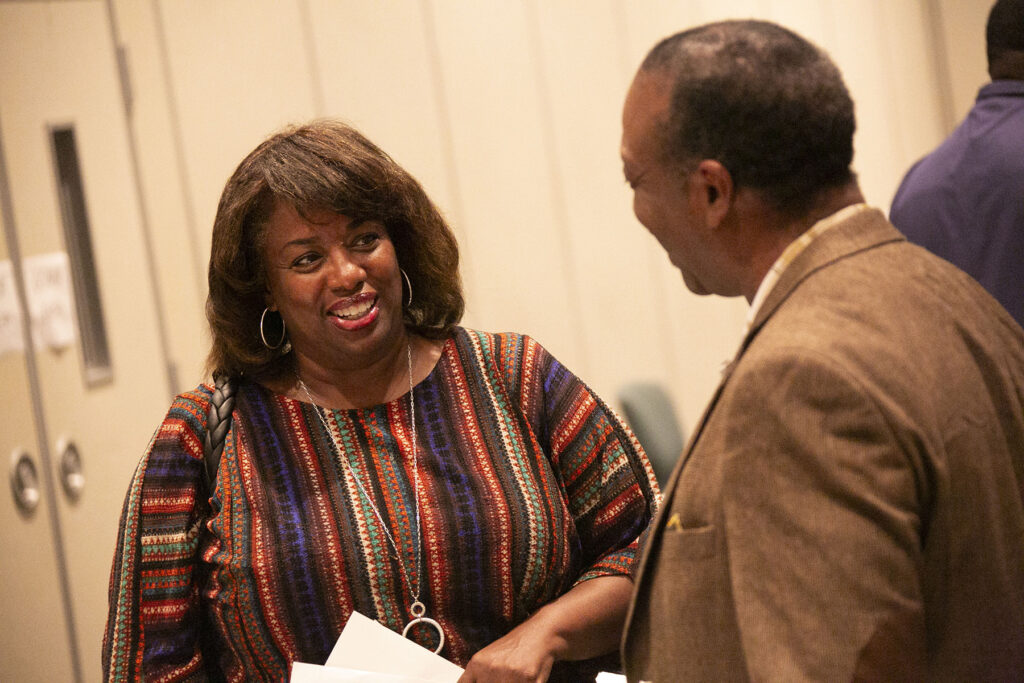
The dinner, held Oct. 27 following the annual Mississippi Baptist Pastor’s Conference, was hosted by the Mississippi Baptist Convention Board’s (MBCB) Multicultural Ministries Department, led by the Rev. Lowell Walker and Paula Smith.
Church leaders from around the state welcomed MBCB employees, including Multicultural Ministries consultants Ray Duplessie (Choctaw Ministry) and Vickie Stuart (Deaf Ministry). As dinner began, Smith recognized victories across multicultural ministry this year, celebrated with applause and praise to the Lord.
Rocky Tzib, Hispanic ministry consultant, could not attend because the Mississippi Hispanic Convention had just occurred that weekend.
Smith reported that 23 churches were represented. Duplessie shared about the first Choctaw Association mission trip in June, which brought Vacation Bible School to an isolated community on a South Dakota reservation, and said more trips are in the works. Stuart introduced guests from the Way Church in Brandon — including lead pastor Joe Thrasher — and Teresa Burns, who is Deaf and hard of hearing. Burns presented her testimony, followed by a song she signed in American Sign Language (ASL).
From isolated to included
Burns grew up in rural Waynesboro. Her parents were strong role models, but church services were nearly impossible to follow. Even with her mother’s faithful note-taking, without an interpreter, Burns missed much. “I knew God,” Burns signed, “but not to the depth that I wanted to know God.”
After Burns married her husband, Ricky, and they had their first child, the family moved to Meridian. Determined that her daughter would grow up in church, Burns persisted in attending even though there was no interpreter.
Longing for personal understanding, she prayed for a church with a Deaf preacher and a Deaf congregation. Three months later, her employer announced a relocation to the Jackson area. Initially resistant to a big-city move, Burns soon recognized an answer to prayer.
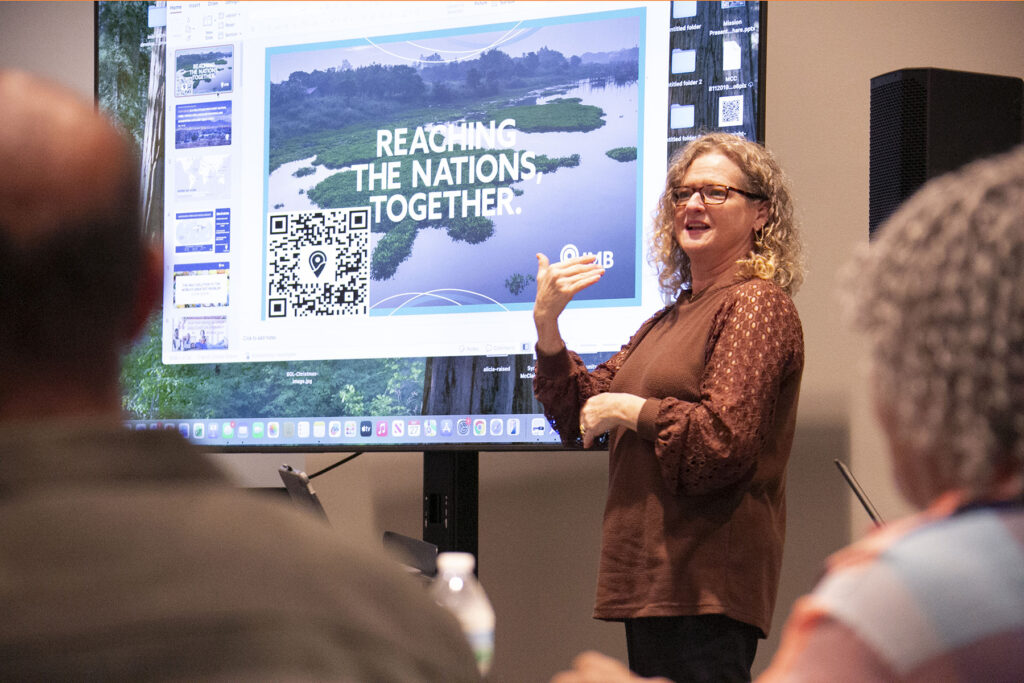
In Jackson, the family became involved at Woodland Hills Church, where they could attend a separate service led in ASL with other Deaf believers. Burns was astonished to find a Deaf choir. “Ricky and I really felt like we had a connection there,” said Burns. “We thought, ‘Is this what heaven is going to be like, where we can all communicate and understand each other at the same time?’” Under the mentorship of pastor Jim Booth and his wife, Edith — both fluent in ASL — Burns finally knew God personally.
When Woodland Hills disbanded in 2019, the family visited other churches. In many places, they were escorted to a corner or the back of the sanctuary with the interpreter, and felt isolated from the congregation. Only 2% of the world’s Deaf population know God, a reality shaped by this kind of seclusion. Burns burned to run headfirst into Deaf ministry, but sensed the Lord’s surprising instruction: “Rest, Teresa.”
She waited, studied Scripture and continued to rest, until one day on a pickleball court she and Ricky met Thrasher, a hearing pastor who began signing as soon as they met. As they got to know him, they envisioned a church where Deaf members were more than welcome — they were included. The Way Church team has been working with Burns and other Deaf members to make the Gospel and fellowship accessible. Beginning Sept. 14, an interpreter stands onstage with the pastor every Sunday so Deaf worshippers can sit anywhere.
Missions to Uganda
At the start of October, a team of four pastors led by the Rev. George Smith traveled to Uganda to witness how God is at work and to train local pastors in sound doctrine.
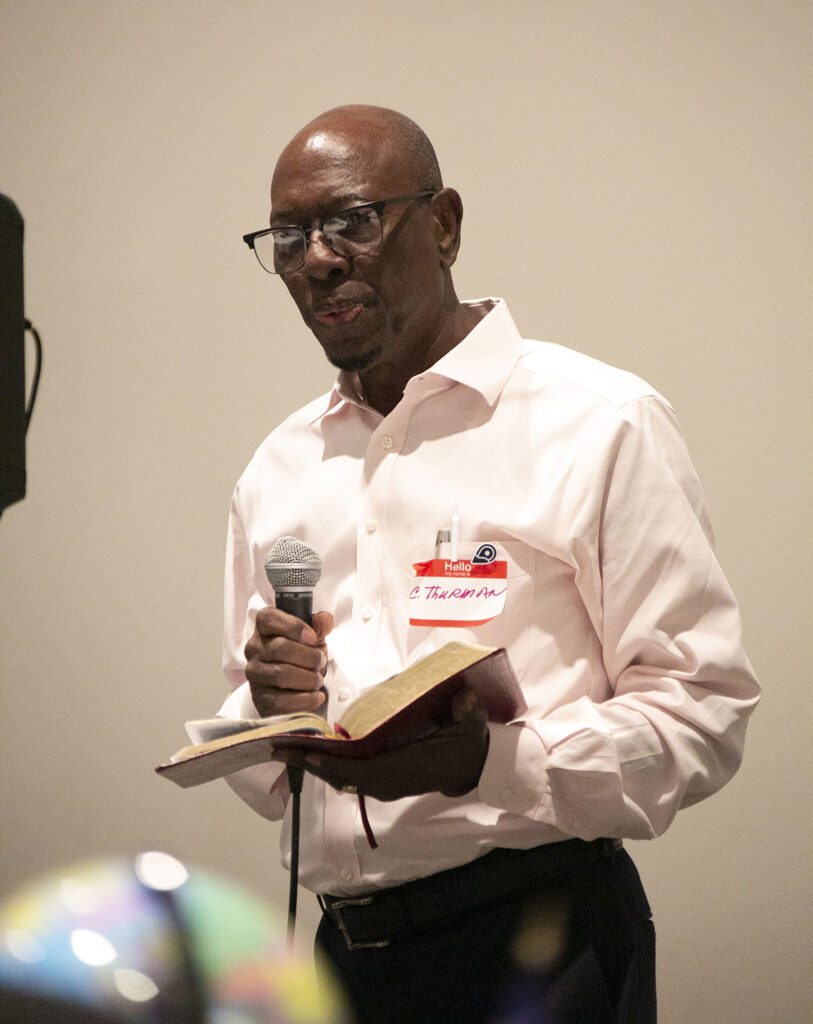
Charles Thurman, pastor of Greater Harvest Church in Jackson, said, “The experience made Matthew 28 come alive.” Faced with physical hunger, illness and poverty, the team grew in compassion for those suffering spiritual starvation and sickness. They were struck by the many needs of their Ugandan brothers and sisters — and by the all-sufficient simplicity of worship on a mud floor.
“We left with a refreshed feeling and a renewed mind to carry out the mandate that God has assigned us to do as believers,” said Thurman. “I thought about that as I worshiped in one of the churches there. I saw the excitement of worshiping and praising God, and I thought about what Paul said, ‘Whatever state I am in, I am simply content because I am where God wants me to be.’ For some of us, if the air conditioning is out at church, we won’t show up. But this church was filled inside, with people standing outside, worshiping God and giving Him the glory.”
“I hadn’t seen so many people praising the Lord with the little bit they got,” said the Rev. Keith Ratliff, pastor of Calvary Christian Oak Forest Church. “And we won’t even clap our hands to praise Him. But they will walk 10 to 15 miles to church, barefooted with their best clothes on to hear the Gospel. It’s something to experience, and it changed my life.
“One thing that grasped my heart was the pastors,” Ratliff said. “There were so many questions that they needed to ask. There were so many answers that they needed to know.”
“In Uganda, there is a lot of false doctrine,” said the Rev. Mauricka McKenzie, pastor of Fountain of Life Church in Clinton. “They were open to hearing the right Gospel and not a prosperity gospel. Most of the pastors wanted us to come back for two or three more sessions. I had an amazing experience, and we got to share the true Word of God with a lot of people.”
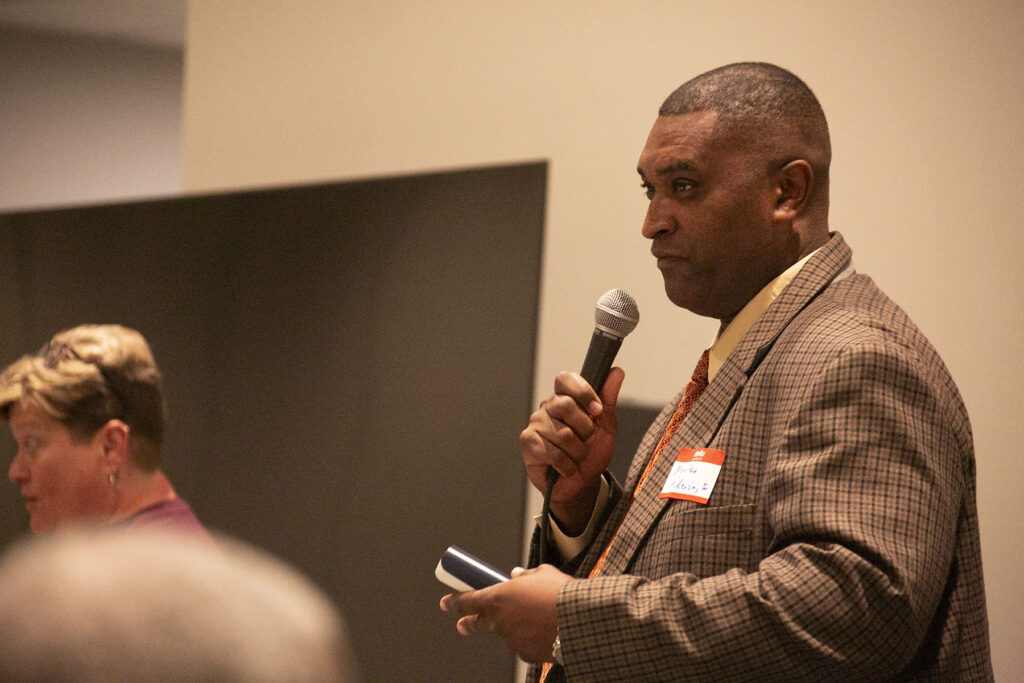
George and Geraldine Smith are retired International Mission Board (IMB) missionaries who served in Uganda for 21 years, and their work continues. Their prayer is to see more African Americans on mission — through short-term trips and, most of all, lifelong service. “In the book of Isaiah, God asks, ‘Who will go for Me?’,” Smith said. “God is still calling, because the job is going to get done with or without you. The blessing will be on you if you are involved in it.”
Walker, pastor of Mt. Sinai Church in Tupelo and MBCB African American ministry consultant, added, “Every time I go and come back, I feel a little bit more humbled, more fine-tuned to preach the Gospel, and more Christ-centered. Yes, you will not come back here the same.”
To all nations
Guest speaker Quintell Hill serves as the IMB mobilization strategist for African American churches nationwide, and his “heartbeat is to see more people say yes” to the Great Commission. “We have the solution to the world’s greatest problem of lostness, and His Name is Jesus. Why in the world would we be selfish with our salvation? There are a lot of lost folks in America,” Hill said, “but the problem overseas is access. They don’t have access to hear the Gospel or read the Bible in their languages. Around the throne of heaven, there will be believers from every nation, tribe, people, and language. We know God is saving people from the nations, so that’swhere we’re headed.”
“This is the reality of the numbers: of the 3,500+ missionaries we have overseas, 27 of them are African American. When I heard that number, that’s what God used for me to say yes to joining the IMB in this role. I want to see more African Americans say yes.”
With strong response in the room, Hill urged pastors to call out the called from within their congregations and to keep the urgency of global missions before their people.

